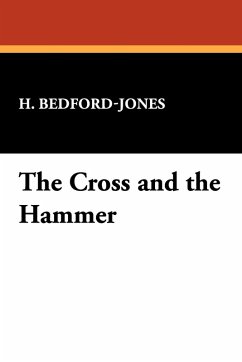
Hammer and Anvil
Versandkostenfrei!
Versandfertig in 1-2 Wochen
31,99 €
inkl. MwSt.
Weitere Ausgaben:

PAYBACK Punkte
16 °P sammeln!
Hammer and Anvil is a philosophical and social novel by Friedrich Spielhagen that explores the ideological conflicts and societal transformations of 19th-century Germany. The story revolves around characters from different social classes who are caught between tradition and progress, symbolized by the titular "hammer" (forces of oppression) and "anvil" (those being shaped). Spielhagen delves into themes of justice, morality, and political change, offering a deep and critical reflection on the turbulence of his time.













